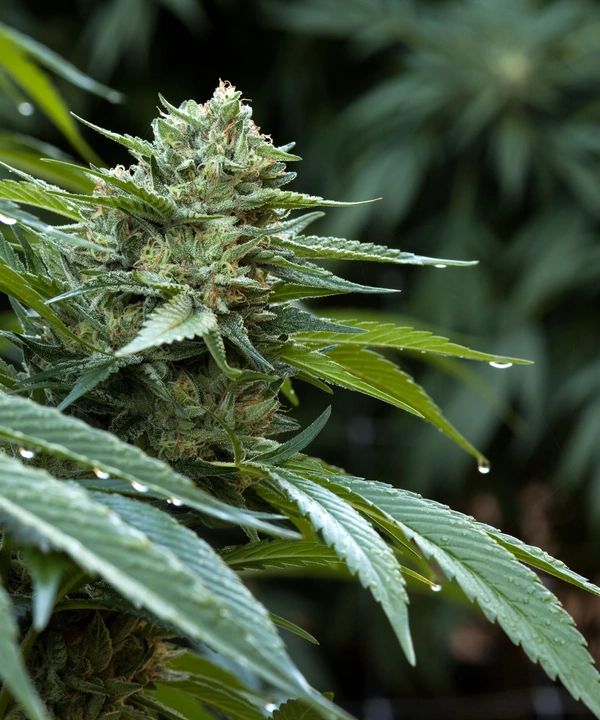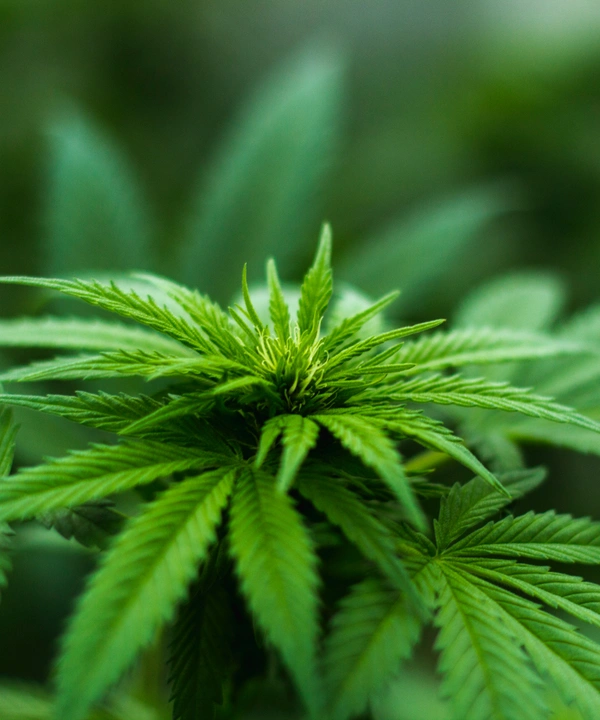Can you get addicted to Cannabis?
While 91% of Cannabis consumers will not develop an addiction, it's helpful to understand who could be at risk for Cannabis misuse and what you should look out for.
 Image credit:
Pixabay
Image credit:
Pixabay
In 2015 researchers examined the adverse health effects of Cannabis by reviewing the evidence available since 1993. They found that the lifetime risk of developing a cannabis dependence was around 9%, which is lower than the dependence on other substances.
-
Nicotine (32%)
-
Heroin (23%)
-
Cocaine (17%)
-
Alcohol (15%)
-
Other stimulants (11%)
If you're interested in reading more about this study, you can read it here.
"91 % of Cannabis consumers (91%) will not develop an addiction "
We, humans, love to seek out experiences and substances that spark joy. However, when we rely too much on substances to feel joy, it can alter our internal reward system and can lead to addiction.
While the vast majority of cannabis consumers (91%) will not develop an addiction, it's helpful to understand who could be at risk for cannabis misuse and what you should look out for. Some studies have shown that while Cannabis can lead to addiction, it can also be a form of addiction treatment.
What is an addiction?
When the use of substances disrupts your daily life and negatively affects your relationships or work and you can't stop using, even though you want to quit.
A chemical addiction is defined by three stages:
-
First stage: binging and intoxication stimulating dopamine, making you feel euphoric
-
Second stage: withdrawal and negative effects; absence triggers a panicked, negative reaction
-
Third stage: being pre-occupied with consuming more, leading back to the first stage
Cannabis use disorder
Cannabis use disorder (CUD) is the official name for Cannabis addiction. CUD means that you can't stop using marijuana even if it negatively interferes with many aspects of your life. Cannabis use disorder symptoms include continued use despite the following:
-
Physical problems
-
Psychological problems
-
Social or relationship problems
-
Problems at work, school and home.
People with CUD might experience
-
Intense cravings for Cannabis
-
Cancelling other activities in favour of using Cannabis
-
Difficulty controlling or reducing cannabis use
-
Taking Cannabis in high-risk situations that could cause harm
-
Consuming more Cannabis than intended
-
Continuous failed attempts to stick to limits you've set for yourself
-
Increased tolerance of Cannabis with a need for higher doses
-
Withdrawal symptoms, like depression, or irritability.
Impacts of Cannabis use disorder
Cannabis addiction, like all substance addictions, can alter how we receive and respond to rewards, cope with stress, manage our decision-making process and ultimately control ourselves. We can suffer from poor concentration skills or lapses in judgement which may lead us down paths that may not be in our best interest. Furthermore, prolonged use could lead to responses becoming dysfunctional when faced with stressful situations. When faced with an intense experience, like a close call on the highway or witnessing an argument, it's normal to feel overwhelmed and flooded by stress hormones. But research has revealed that long-term Cannabis users often have less of this response; cortisol levels stay low regardless of circumstances. While being more chill during stressful situations can be beneficial for most people, not feeling peak alertness in these types of scenarios could put you at risk if you need to react quickly or run away from a lion.
The pleasurable effects of Cannabis are caused by a natural dopamine release, but overuse can lead to an unnatural reinforcement that may become addictive. In fact, studies show that with prolonged use without rest periods in between sessions, the brain's CB1 receptors stop responding normally and need increasingly large amounts of THC for users to feel any effect - called desensitization. But if you take some time away from marijuana, these receptors will start working again naturally! So it is important not just how many times we use Cannabis but also when we choose our breaks so as not totally lose out on its beneficial elements.
When using marijuana, your body's natural endocannabinoid production may be affected. Without the drug, some might experience increased levels of stress and even withdrawal symptoms, which could be a sign of dependence.
Can you overdose on Cannabis?
Cannabis does not produce fatal overdoses as do opioids or alcohol.
Cannabis does not produce fatal overdoses like opioids or alcohol
Who is more vulnerable to getting addicted to Cannabis?
Your genes and environment increase your chances of developing a CUD, and if you misuse other substances, like alcohol, you're also more likely to get CUD.
The following people have a higher risk of developing a CUD:
-
Younger people whose brains are still developing
-
People who are diagnosed with another substance use disorder, like alcoholism
-
People with mood disorders like depression and anxiety are 4x more likely to become heavy users of Cannabis, which increases their risk.
Can Cannabis help with addiction?
While THC can contribute to addiction, a potential remedy for addiction may also be found in Cannabis plants. CBD, or cannabidiol, has been suggested as a potentially helpful intervention. Although research is still ongoing to further explore its efficacy and effects, current data demonstrated that it could help with various addictions without being addictive.
Do you need help?
Are you trying to quit but feel stuck? Do physical or emotional symptoms make it difficult for you to stay away from marijuana? Does your urge to use seem overwhelming and lead even though negative consequences pile up around you? If this sounds familiar, there's a chance that what you're experiencing is called Cannabis Use Disorder.
Ultimately, cannabis addiction is nothing to be ashamed of. With the right help and support, however, you can take back control of your cannabis use and start living a healthier, happier life. Please reach out to your doctor, an addiction support group or even us if you need help overcoming your cannabis dependence. We are happy to find you the right support. You deserve to live a happy and healthy life filled with positivity. You've got this!
Share this article
How long does Cannabis stay in your system and when will it show up on a drug test?
Driving with any THC in your system is illegal in Australia and you might be surprised how long THC can be in your system. In this article we discuss different drug tests and factors that might influence the detection of THC or CBD in your system.






